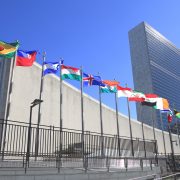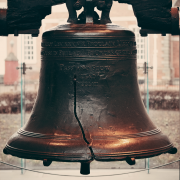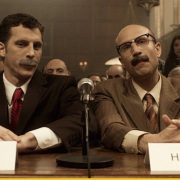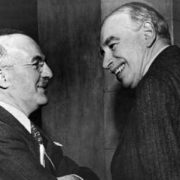On July 7th, 2018, in Sochi, Russia, the Croatian national soccer team won a match against the Russian national soccer team in the FIFA World Cup tournament. At the end of the normal time assigned to the completion of a soccer game, 90 minutes, the score was tied at 1-1. At the end of the extra time assigned to achieve a decisive result in the knockout stage of the tournament, the score was tied at 2-2. The match was ultimately decided on a penalty shoot out. 5 players from each team take turns at attempting to make an uncontested shot into the goal defended by the opposing team’s goalkeeper. After 10 shots, 5 for each team, the team with the most goals advances to the next round, and the other team is eliminated. If the number of goals remains tied, alternate shots are taken until one side, having had the same number of shots as the other, has succeeded in scoring one more goal.
The penalty shoot out is tense, and entertaining and engaging for the fans. It guarantees an outcome. Only one side can win, and both sides accept the general rule that’s represented by the shootout mechanism. It’s devastating for the losing team who played their hearts out over 120 minutes of full-tilt soccer.
In Law, Legislation and Liberty, F.A. Hayek introduced us to the idea of general rules to govern society. The rules imposed by government institutions can not be designed to bring about particular future outcomes, because the future is unpredictable. They can not be designed to favor one group over another. They must give the same opportunity to everyone to succeed, even though it is impossible to predict how any individual or group will perform in the environment created by the general rule. The overall outcome depends on the use of knowledge (which way has the goalkeeper dived in his last five penalty save attempts?) and skills possessed by individuals (how do I fake the goalkeeper about which side of the goal I am shooting for?)
The shooters all share the same ends. They are all operating under the same general rules. It is in the choice of means and the use of knowledge and skills that the individuals differ. These are what Hayek calls the conditions of freedom.
All of the collective interests can not be satisfied – it is impossible for both Russia and Croatia to be happy with the ultimate outcome. No-one knew in advance which team would perform best in the penalty shoot-out. The laws of the shootout were the pre-condition for unpredictable spontaneous order to emerge: either Croatia or Russian would advance to the next round but not both.
The most telling point is that everyone in the society that constitutes FIFA, 211 countries according to wikipedia, agrees to the general rules of the game and the shootout, and accepts the result. Democracy could not have brought about the result in which Croatia defeated Russia; the latter country could easily outvote the former country, and by the framework of the 51% majority, could impose some different rules, such as that the team representing the country with the higher population goes through to the next round if the match is tied after 120 minutes. Nor would it provide a viable outcome for one group of countries to adopt one set of rules, and another group to adopt an alternative set. Everyone plays by the same set of rules. Everyone accepts that the outcomes are not predictable in advance.
Hayek did not anticipate the FIFA World Cup 2018. His point was that society must be designed in the same way. The essence of a free society is that there are general rules applied to all, and the makers of the rules must not favor one group over another, nor must they design the rules to accomplish any specific outcome. The rule makers have no idea in advance how individuals will perform within the rules, nor how they will behave. One penalty taker will bob and weave, and another will take a direct run at the ball. One goalkeeper will jump up and down to distract the penalty taker, another will stand still until the crucial moment. All these behaviors are permitted. Which will succeed? We don’t know, and can’t know. The rules are designed to facilitate unknown actions of individuals based on their own choice. Each individual’s outcome may be the result of skill, or knowledge, or luck.
Each individual is free, using individual knowledge and skill, to do his or her best within the general rules that apply to all, and is free to learn from the experience, and, if the experience is not what was intended, to try to succeed via a different approach next time. That is the essence of the free society.













